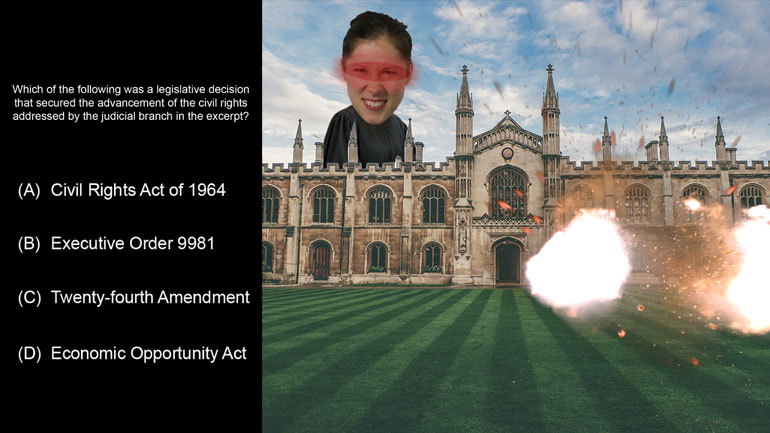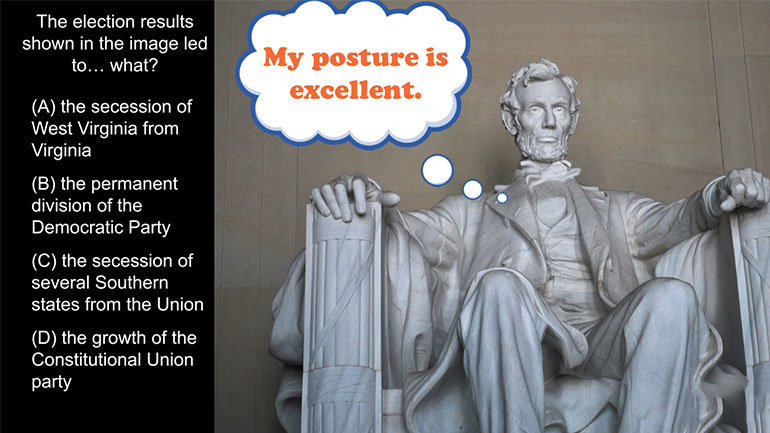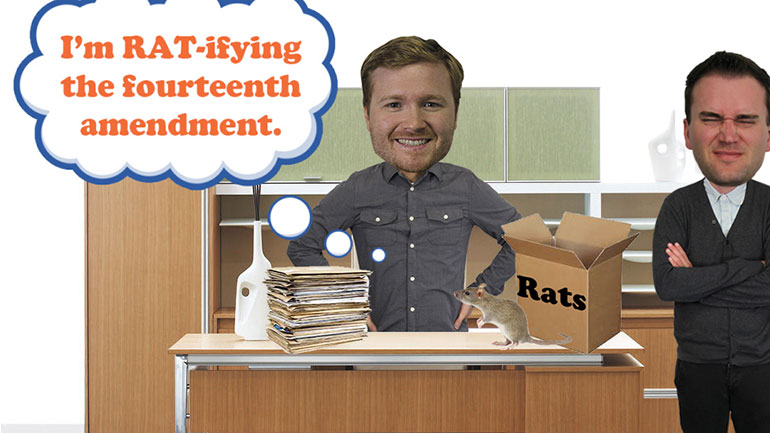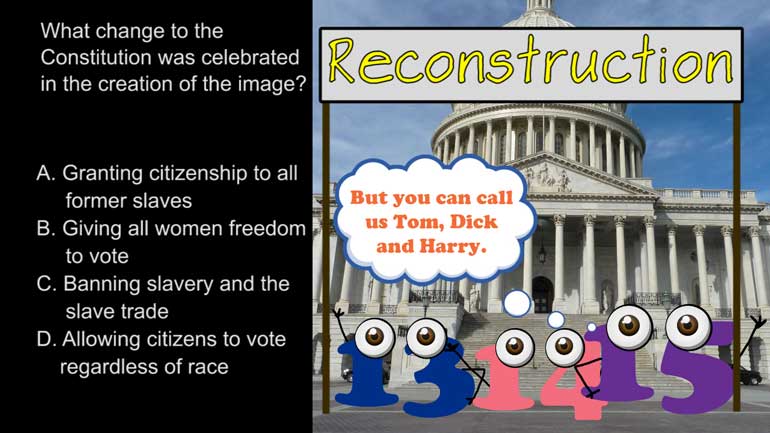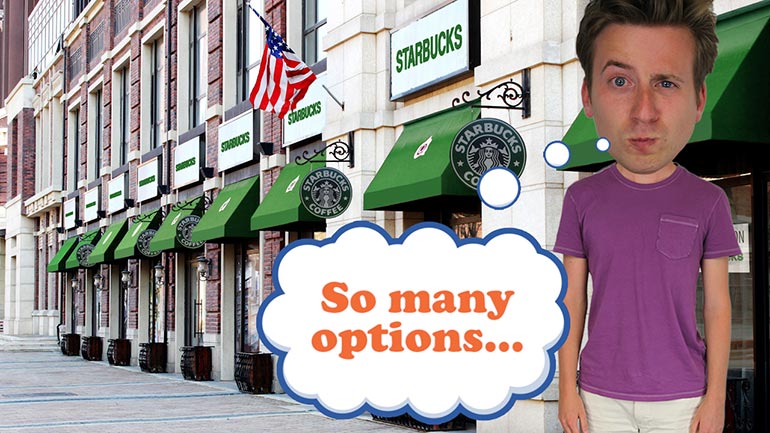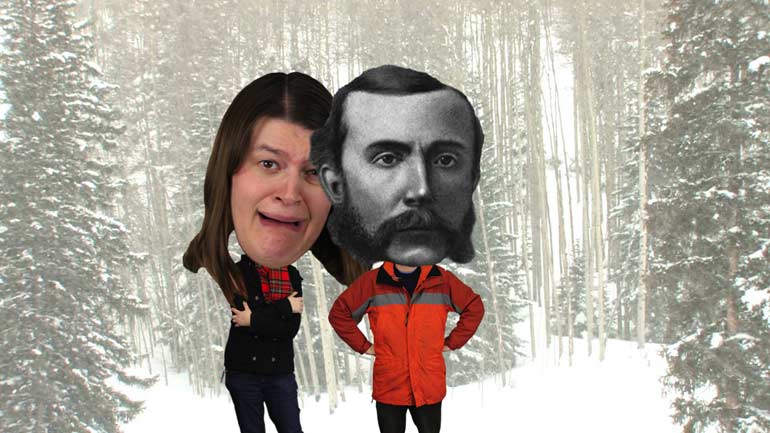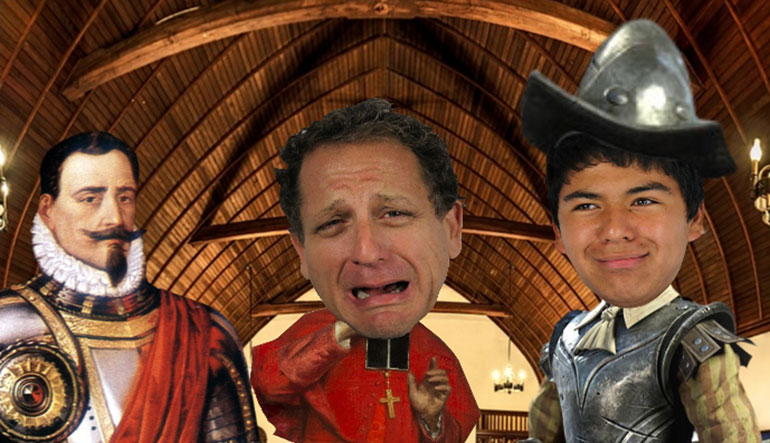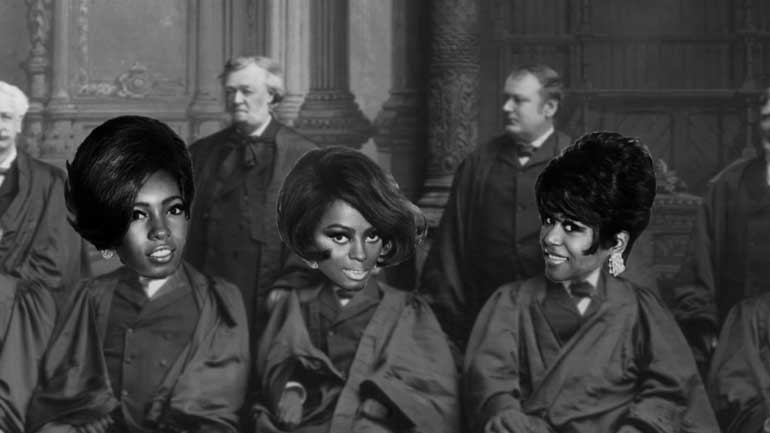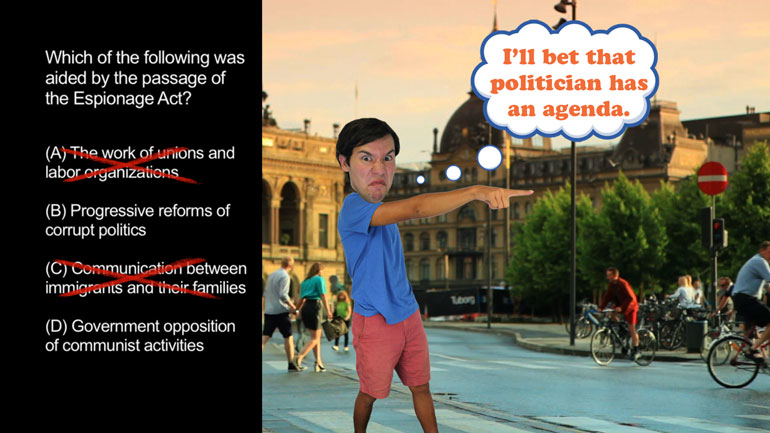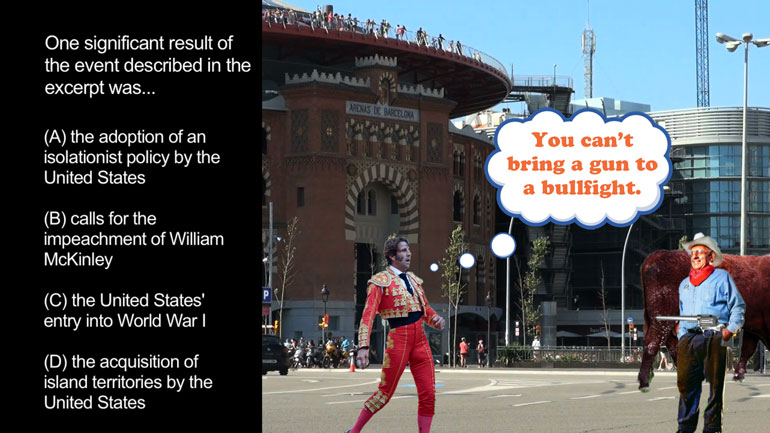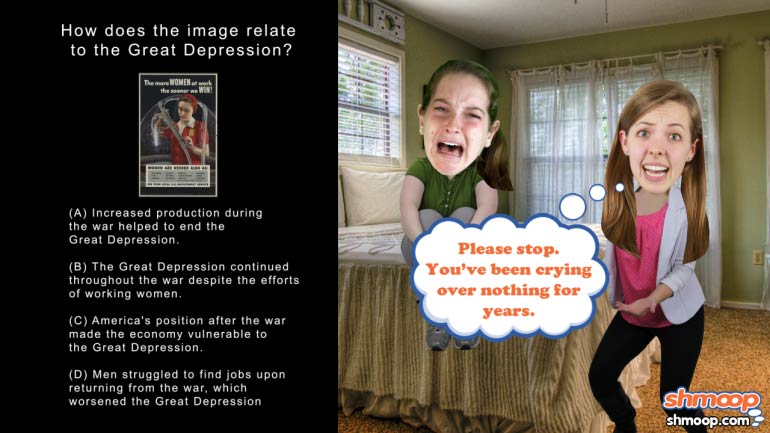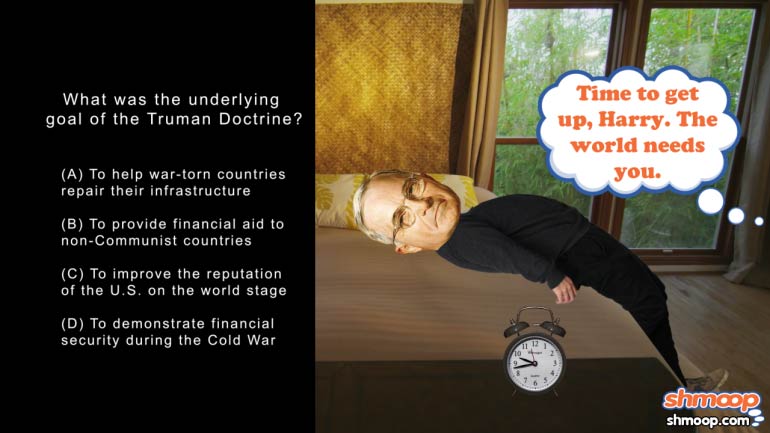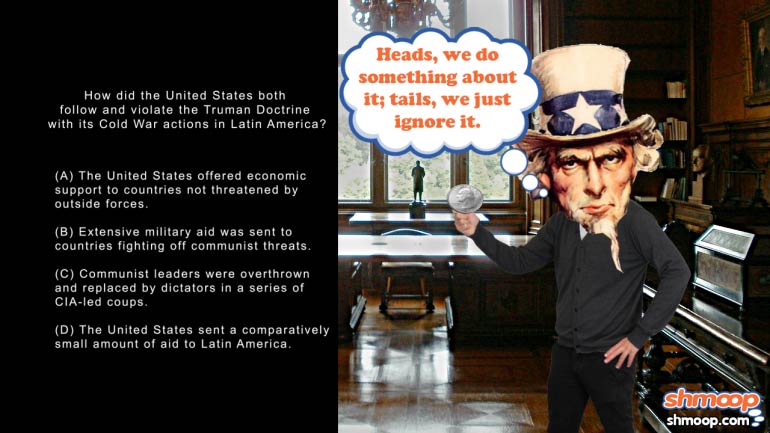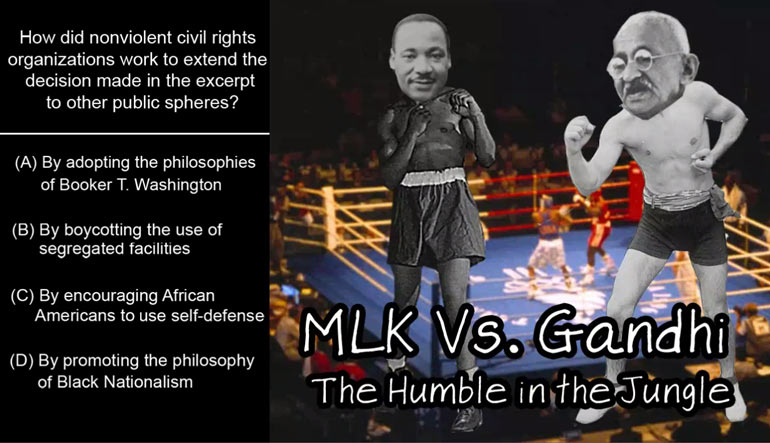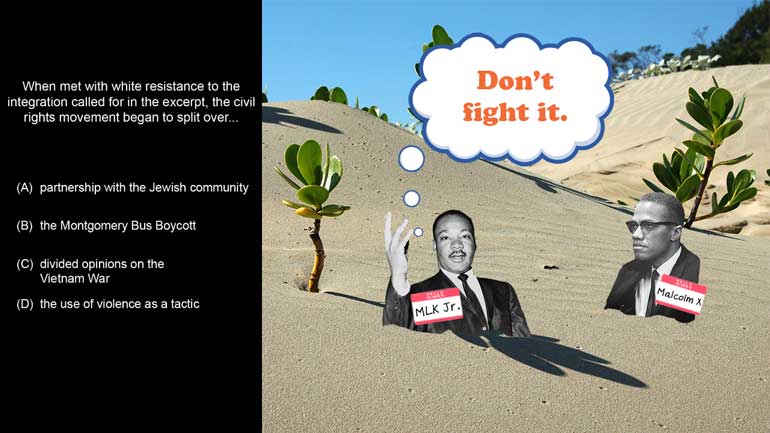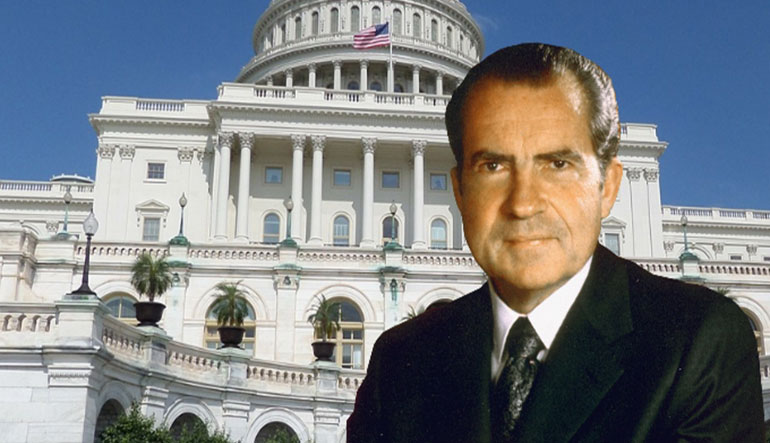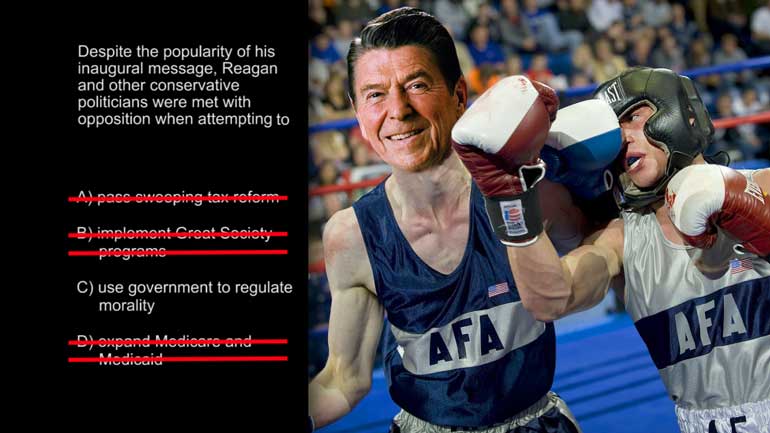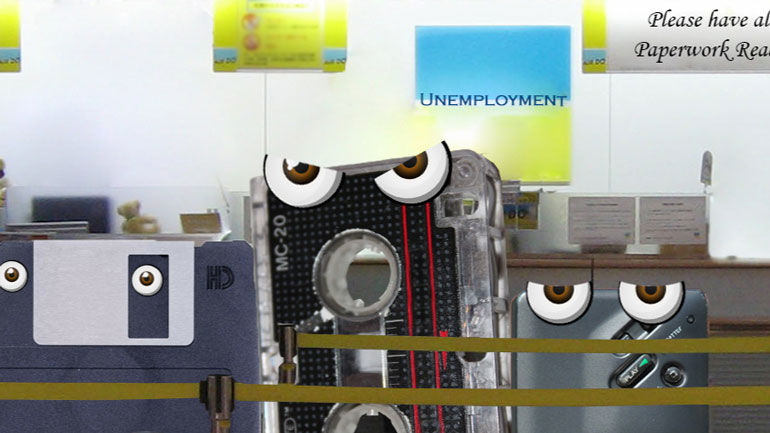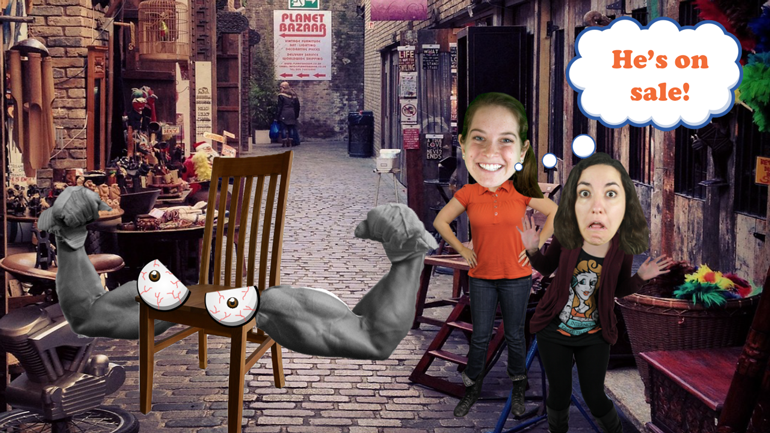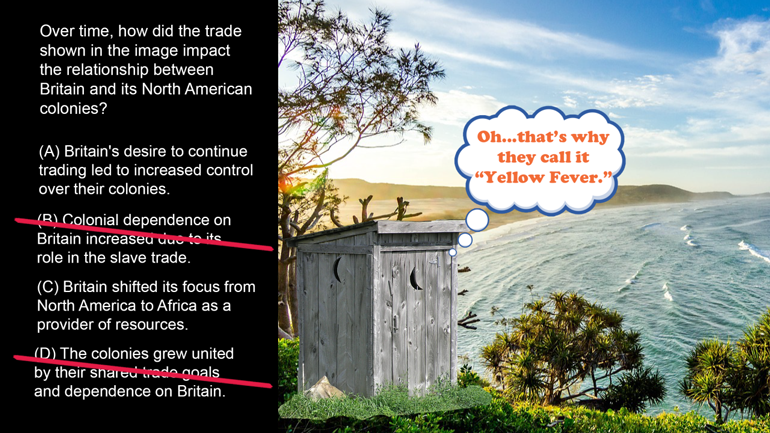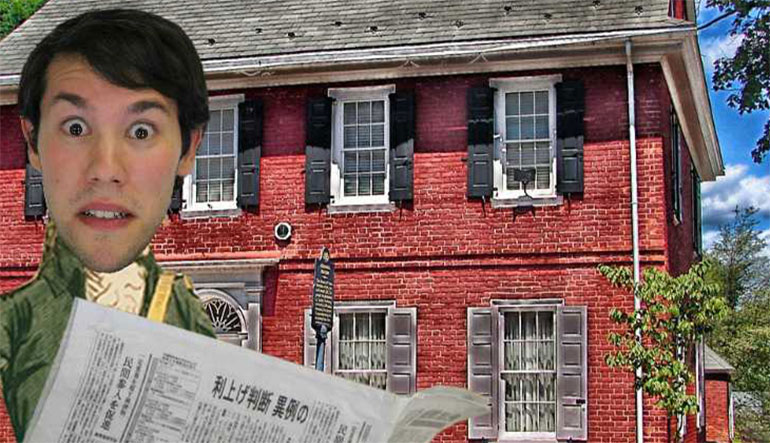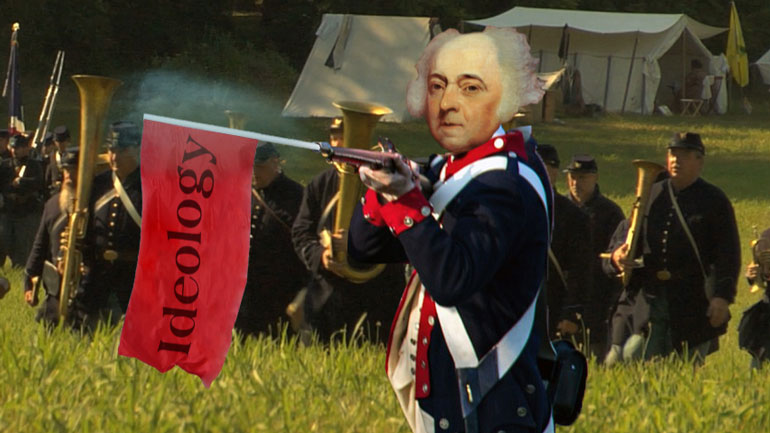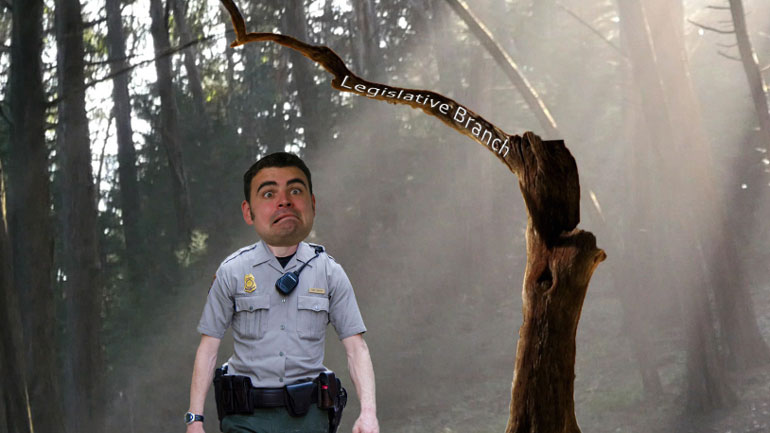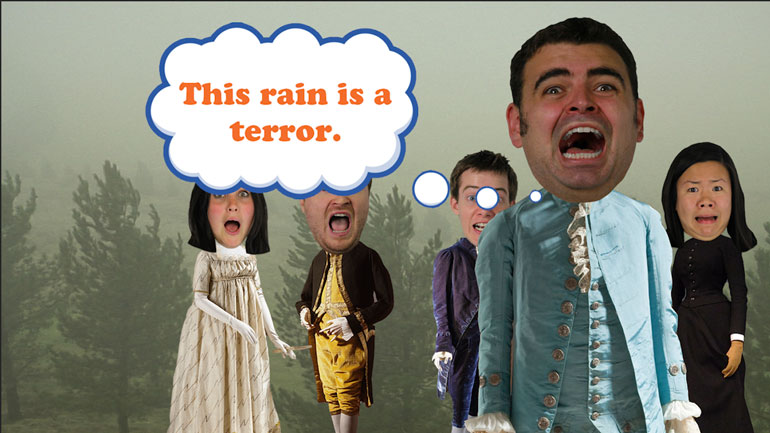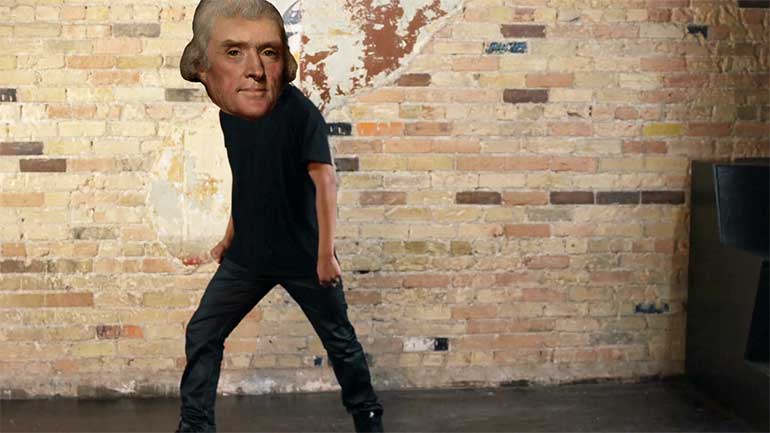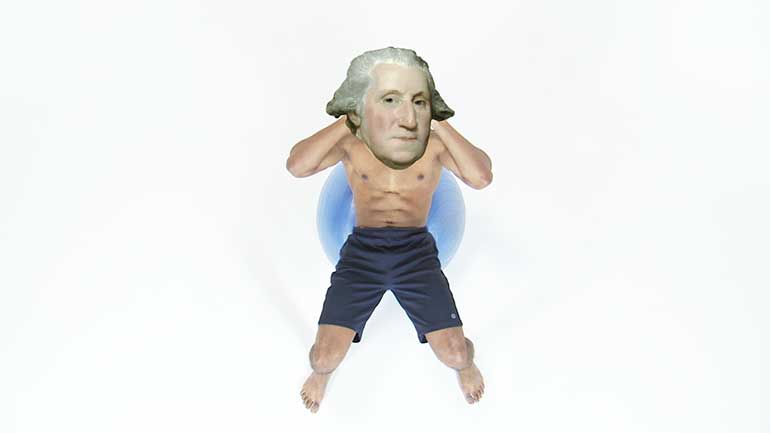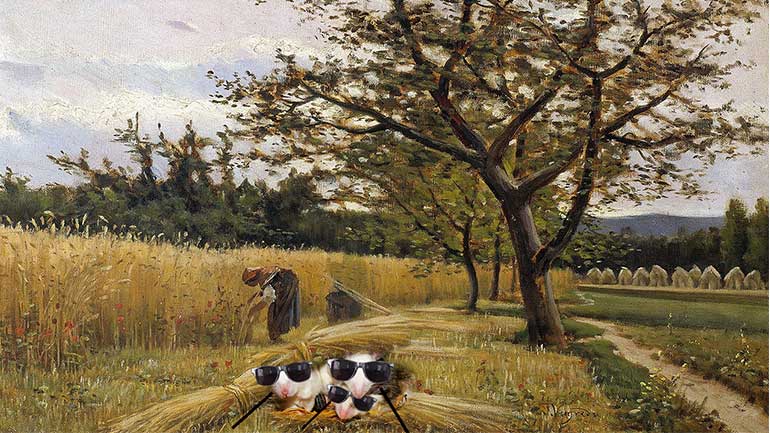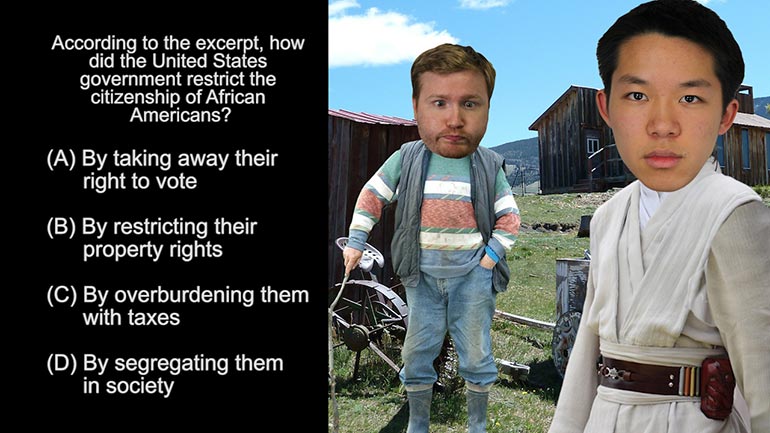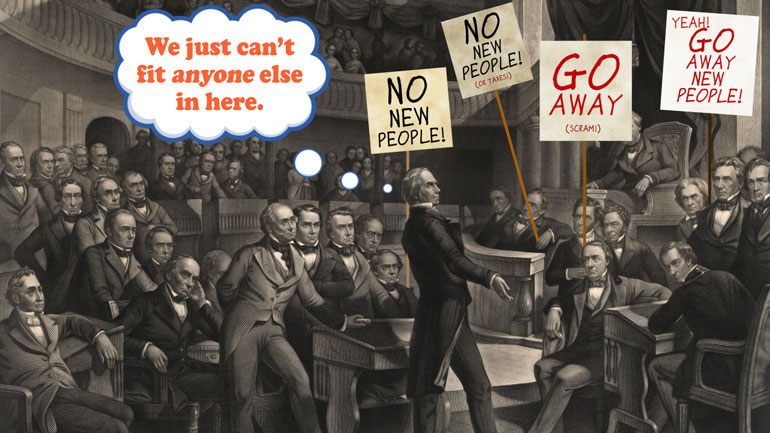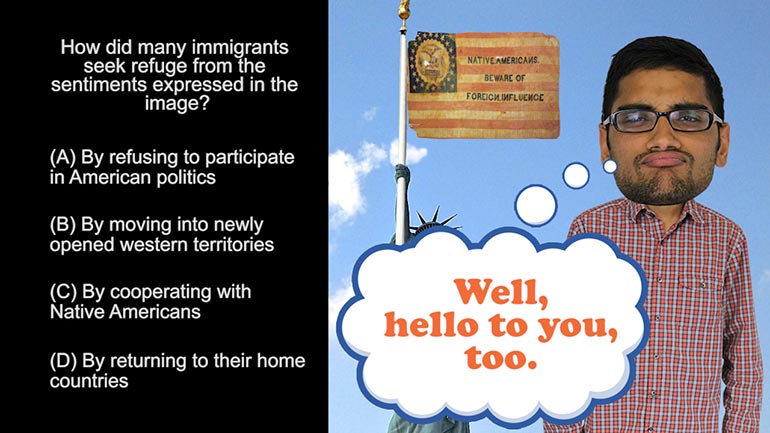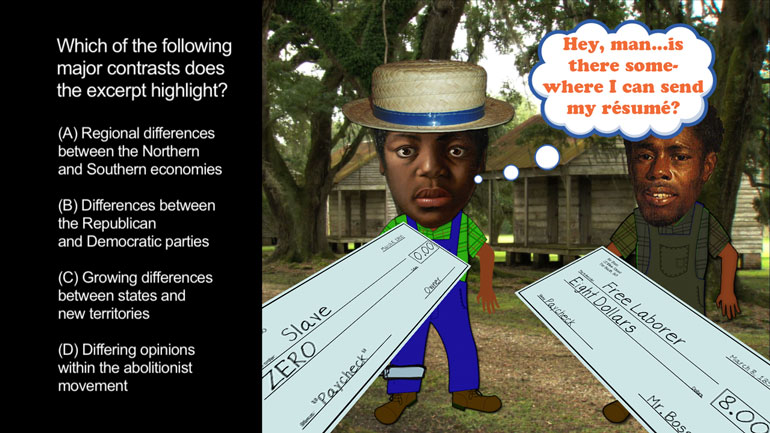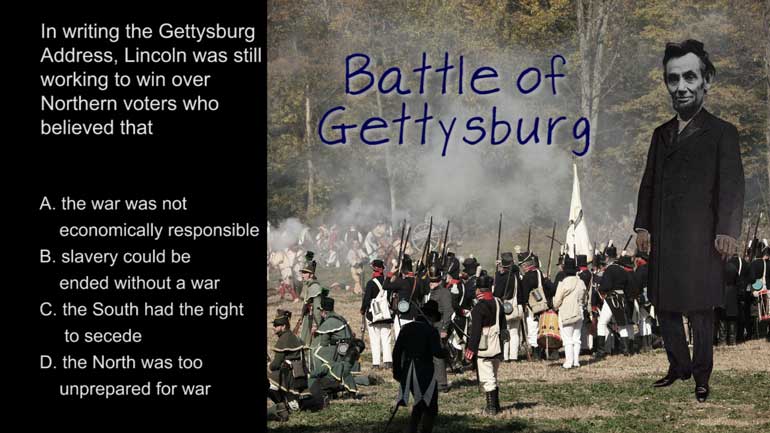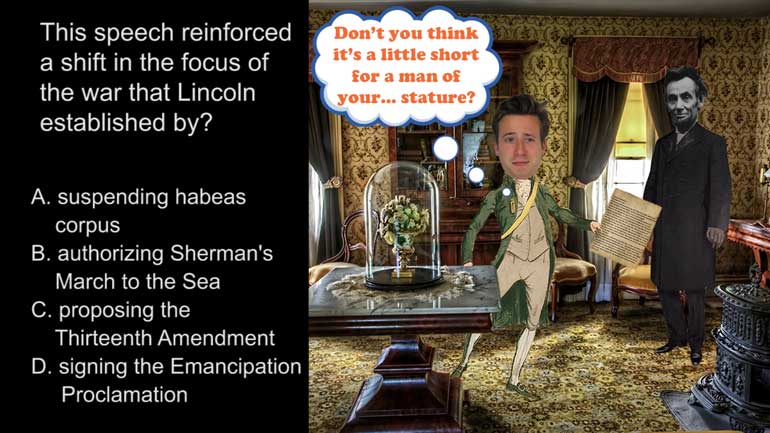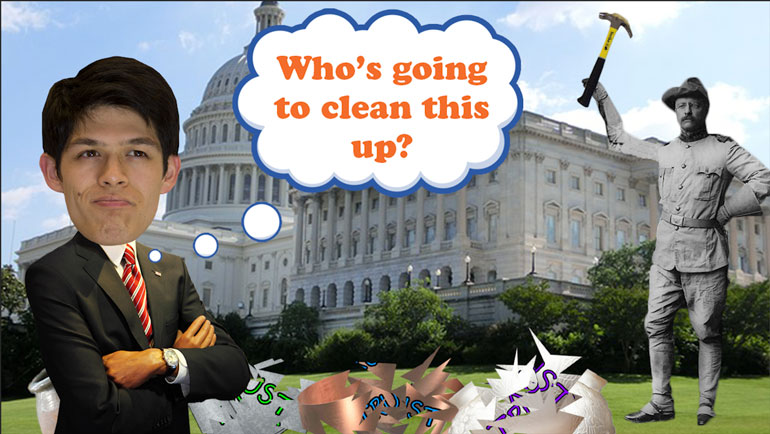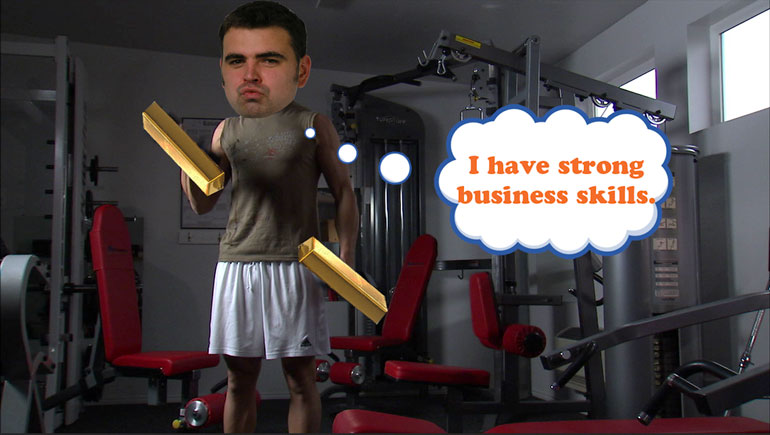ShmoopTube
Where Monty Python meets your 10th grade teacher.
Search Thousands of Shmoop Videos
Exam Videos 131 videos
AP U.S. History Exam 1.47. Which of the following was a legislative decision that secured the advancement of the civil rights addressed by the judi...
AP U.S. History Diagnostic 1. Relationships like the one shown in the image resulted in the development of...what?
AP U.S. History Diagnostic 15. How did groups like the ones represented by the image influence industry in America?
AP U.S. History Diagnostic 13 191 Views
Share It!
Description:
AP U.S. History Diagnostic 13. Why did the Reconstruction Acts fail to change Southern attitudes toward race?
Transcript
- 00:00
[ musical flourish ]
- 00:03
And here's your Shmoop du jour, brought to you by a civil war,
- 00:06
the most restrained and respectful of conflicts.
- 00:09
Actually, not really. The Civil War was nasty.
- 00:12
All right, check out this excerpt.
Full Transcript
- 00:13
[ mumbles ]
- 00:17
[ mumbling continues ]
- 00:22
All right, and the question:
- 00:23
Why did the Reconstruction Acts fail to change Southern attitudes toward race?
- 00:28
And here are your potential answers.
- 00:30
[ mumbles ]
- 00:35
All right, well, the United States might have made it
- 00:37
through the long, bloody Civil War, but it struggled
- 00:39
to bring itself back together when the fighting ended.
- 00:42
Let's see how those good intentions
- 00:44
fell short on the road to reconciliation.
- 00:46
Did the Reconstruction Acts fail to change Southern attitudes
- 00:49
toward race because B -
- 00:52
the Republicans were more focused on building a political base
- 00:55
in the South? Hmm?
- 00:57
Well, actually, the Republicans wouldn't have a solid
- 00:59
political base in the South until Reagan was elected
- 01:02
in 1980. So B is still about a century away.
- 01:06
Did the Reconstruction Acts come up short because C -
- 01:09
the Southern states banned together and refused
- 01:12
to meet the Act's demands?
- 01:14
Well, if they could have, they probably would have.
- 01:17
Very few Southern leaders wanted to sign the Acts to begin with,
- 01:20
but they didn't have very much bargaining power being losers
- 01:23
in the War and all. So that knocks out C, as well.
- 01:26
Could the Acts have failed to make a difference in
- 01:28
racial attitudes because D - the Democrats in the South
- 01:32
made negotiations with Northern Democrats?
- 01:35
Well, Democrats in the North also opposed
- 01:37
granting Blacks the right to vote,
- 01:39
but Republicans were firmly in control during this period.
- 01:42
So Northern Democrats may have won the war, but they lost
- 01:46
this particular battle.
- 01:47
Which means that the Reconstruction Acts failed to change
- 01:50
Southern attitudes toward race because A -
- 01:53
the Southerners held on to determined attitudes
- 01:55
and were resistant to change.
- 01:58
Despite the best intentions of the requirements
- 02:00
to re-enter the Union following the Civil War,
- 02:02
the laws fell short of transforming Southern feelings about race.
- 02:06
That makes A the right answer.
- 02:08
In fact, Southern states were so resistant to racial equality,
- 02:12
that in the years following Reconstruction,
- 02:14
they passed laws restricting the very freedoms that
- 02:17
the Reconstruction Acts attempted to grant former slaves.
- 02:20
When changing the law doesn't work,
- 02:22
time is usually the best plastic surgery of the soul.
- 02:25
Ooh. That's kind of a Shmoop-y quote.
- 02:26
You can quote us on that. Pretty good.
- 02:29
[ crash ]
Related Videos
Ever heard of a "living document"? They eat and breathe just like the rest of us! They even walk around on their own two legs. Okay, fine—maybe t...
If the Puritans had gotten their way, religion would play a much larger role in lawmaking these days. Want to know more? Watch the video for all th...
What happened between the creation of the Articles of Confederation and the ratification of the current U.S. Constitution? This video analyzes the...
The Modernists thought the world had a lot of problems, and they were intent on fixing them—or at least talking about fixing them. Unfortunately,...
This video explains Federalism and the quest for a fair balance between state and national power. It covers the progression and compromises of Fede...
